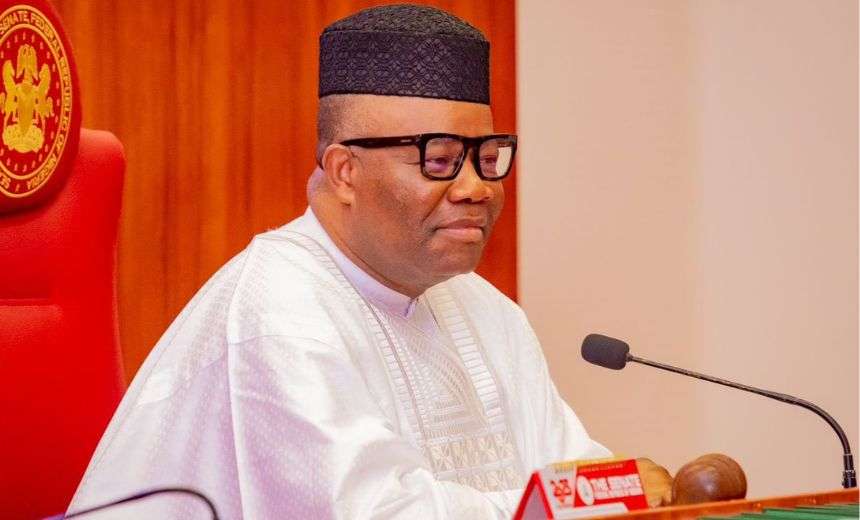President of the Senate, Godswill Akpabio, has called on President Bola Tinubu to institutionalize the legacy of Nigeria’s democratic struggle by establishing a June 12 Museum , a national archive to preserve the stories, artifacts, and sacrifices of the pro-democracy movement.
Akpabio made this appeal during a special joint session of the National Assembly held in honour of President Tinubu’s address to lawmakers, as the nation marked 26 years of uninterrupted democratic governance.
He urged the President to consider creating a permanent monument that would serve as a living testament to Nigeria’s long and painful journey to democracy.
The Senate President hailed President Tinubu not just as the Head of State, but as a veteran of the trenches, a symbol of resistance, and a beneficiary of the people’s trust.
Recalling the events of June 12, 1993, Akpabio described it as a pivotal moment when Nigerians stood up to affirm the power of their voice and vote.
He added that hopes were dashed on June 24, 1993, when the historic presidential election was annulled plunging the country into grief, anger, and ultimately, resistance.
He commended Tinubu’s unwavering role during Nigeria’s darkest democratic days, especially as a member of NADECO, the pro-democracy coalition that resisted military rule.
The Senate President also applauded President Tinubu’s bold reform agenda, citing major policy initiatives such as the unification of the foreign exchange market, promotion of local government autonomy, initiation of tax reforms, attraction of foreign investments, and the establishment of key institutions like the Nigerian Education Loan Fund.
Akpabio used the occasion to reflect on the legislative achievements of the 10th National Assembly, which marks its second anniversary on June 13.
He revealed that within two years, the Senate introduced 844 bills, with 96 passed and 52 already assented to by the President an unprecedented record in Nigeria’s legislative history.
These include critical laws on education, regional development, tax reforms, and local government autonomy.
Akpabio emphasized that governance must be a partnership between the Executive and the Legislature, citing examples from the United States, Ghana, Rwanda, and South Africa, where national progress has been built on strong intergovernmental collaboration.
He also urged Nigerians especially the youth, civil society, and the media to keep democracy alive beyond election days.
Editor : Ena Agbanoma








